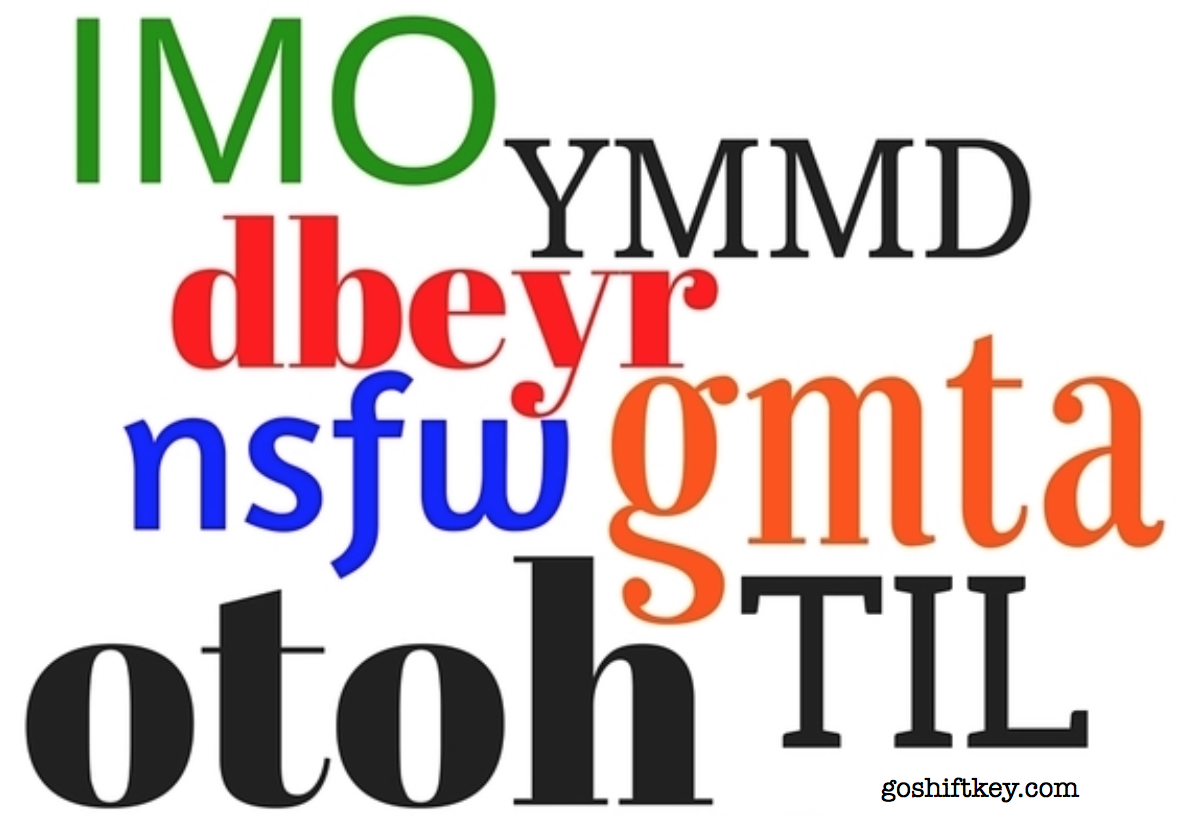If video killed the radio star, what have smart phones and texting done to the English language?
Like the telephone at the turn of the century, email’s rise to popularity in the mid 1990s blurred the lines between business and personal communication. Written language started to mimic speech more closely.
Email gave way to IMs (platforms like AOL Instant Messenger were among the first), which gave way to smart phones, which gave way to texting. Then came social media platforms with their status updates — some with character limitations. And let’s not even get into emoticons or hashtags.
Some language purists refer to Internet acronyms as “penmanship for illiterates,” while some online dictionaries and even the AP Stylebook have made concessions to include acronyms like YOLO (You Only Live Once) or LOL. Some publications, even gossip rags like Gawker, have taken a stand against using acronyms like OMG and other “Internet slang.”
But if you want to be “in the know,” and your audience includes young people — scratch that, anyone who is creating and reading digital communications in today’s world — understanding basic Internet acronyms is a must. Here’s a list of the latest ones we like:
1) IAITS it’s all in the subject
2) TIL things I learned
3) IMO in my opinion, or IMHO in my humble opinion
4) SMH shaking my head
5) NSFW not safe for work, or NWR not work related
6) FWIW for what it’s worth
7) IRL in real life
8) ICYMI in case you missed it
9) GMTA great minds think alike
10) DBEYR don’t believe everything you read
11) YMMD you made my day
12) MMW mark my words
13) OTOH on the other hand
14) WYWH wish you were here
If in doubt, you can always Google an unknown acronym. Make sure to cross-reference urbandictionary.com for an enlightening take on its etymology.
At Shift Key, we make communication capital. We are journalists who know how to create original content, the foundational layer of digital marketing. We understand audience and the information your audience wants — whether you are an agency, brand, company or non-profit. Content is the bedrock of digital marketing. Shift Key creates unique and informative content that feeds marketing activities across a mounting number of channels, generating buzz for brands and leads for products and services.

